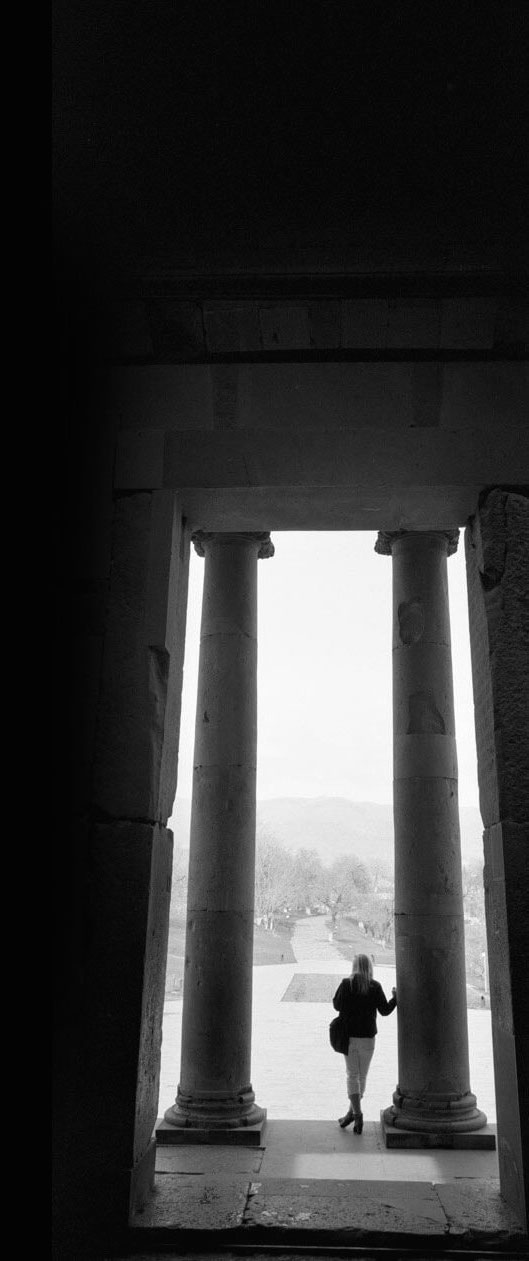“Exquisitely constructed of fascinating textures and colors”
—Milwaukee Journal Sentinel
“This astonishing work, written when the composer was in her early 20s, seems deeper with each hearing”
—Los Angeles Times
“A painter who knows exactly where her picture will be hung”
—New York Times
“Evokes nature with Messiaen-like birdsong, and spirit with marvelous overlapping sonorities—a kind of music of the spheres for our own time”
—Milwaukee Magazine
“An impressively sustained essay in musical melancholy”
—The Guardian, London
“Most remarkable was that after playing the world premiere of Alexandra du Bois’ gorgeous, haunting Heron. Rain. Blossom., the composer climbed the stage, greeted the musicians with silent gestures of thanks, and then herself bowed to the empty room.Quarantine Hall, then, turned out to be a fantastic venue for music. The cameras and microphones didn’t just invite in viewers, the musicians themselves did. They put their absolute trust in the music they were making and exposed themselves, at least as performers, with an immediate and unmediated engagement infrequently found in anyone other than infants. I’m sure when we can all gather together again, that social contact will be like water in the desert, but I already know I’m going to miss Quarantine Hall.”
—Brooklyn Rail
“The 10-minute folie a deux begins with the violin lines tightly intertwined. The instruments seamlessly switch roles as accompanist and melody-messenger. They frequently converge, wrestle, caress, capitulate. Entanglement is the name of the game, with moments of singing lyricism. It’s a virtue that du Bois’ music is simple without being simplistic, maintaining a buoyant intensity that doesn’t wear you out”
—Gramophone Magazine
“Held rapt by an intense, luminous American composer”
—Los Angeles Times
“Fragile whalesong moans usurped by powerful harmonies, offering an extraordinary interface between traditional and avant-garde, all the more so coming from a twenty-year old”
—New Zealand Herald
“The title was Gandhi’s adage. The timing of this composition was the start of coalition forces’ invasion of Iraq. For Du Bois, the dove symbolized the song of dawn. We wake before the sun to build afresh or, if we are soldiers, to prepare for battle. A new morning and age-old mourning conflate. The dove sings with sliding tones, which was the one common element among this concert’s Vietnamese and American music[…]
“In Du Bois’ 17-minute string quartet, those sliding tones returned with double meaning. They heralded lyricism and thick tonal lushness, the sweet dew on the vine, so to speak. They also revealed anger: In the middle there is an Ivesian uproar, Americana turned ugly and mean but resolving into hymnal peace and a return to nature[…]
“This astonishing work, written when the composer was in her early 20s, seems deeper with each hearing”
—Los Angeles Times
“Tension that soars with subtle power”
—Take Effect
“A stunning piece that explored the landscape of war and conflict with a sorrowful tone of foreboding, chaos and devastation”
—BBC Manchester
“She has an unerring sense of beauty… like Mahler, she revealed innocence as always an illusion”
—Los Angeles Times
“This music attempts to be a conscience in a time of oblivion. She dared, in ‘An Eye for an Eye’, to counter abuses of moral authority with an internal, personal sound using the string quartet as a witness, a reminder, that music and creativity are part of a continuing web of responsibility. Alexandra du Bois, for one, looked out at the world and heard an urgent, inward sound revered by western composers since 1750 as the repository of some of their deepest thoughts […]
“Alexandra du Bois found a voice when many people were speechless”
—Kronos Quartet’s David Harrington in Strings Magazine
“One of America’s most promising young composers”
—Los Angeles Times
“Romantics might have deemed this sturm und drang; nowadays, to borrow a term from rock, it was pure emo. Ms. Bass and Ms. Mihailova were equal to the work’s impassioned demands”
—New York Times
“Alexandra du Bois’s yearning ‘Soleil sur Mer’ evoked gloomy skies with a melancholy cello melody and wistful intertwining of the dark colors of the clarinet and the cello […] The musical clouds parted for the brighter mood and jaunty melodies of the second movement, subtitled ‘L’Été’ (‘Summer’), although there were reflective moments amid the sunshine […] A contemplative, lyrical trio”
—New York Times
“How refreshing to hear a new voice whose lush music explores new tonal territory”
—Beverly Hills Outlook
“Du Bois’ Night Songs, String Quartet No. 3, inspired by the life and writing of Holocaust victim Etty Hillesum, was more introspective and meditative than blatantly mournful. The composer had done her homework, reading Hillesum’s work and visiting Amsterdam, Westerbrook, and Auschwitz to step as close to the Dutch Jew’s wartime life experience as possible. The music born of this was starkly touching, conveying the complexity of individual human darkness”
—NewMusicBox
“Harmonies gradually became more complex and culminated in ringing clusters, which then gradually dispersed. In a grand, satisfying pattern of calm, rising tension and release, “In Beauty, May I Walk,” glides to a close on placid open fourths, the equally pure inversion of the perfect fifths. [In] “In Beauty,” dissonance does not equal ugliness. Du Bois voiced and colored her clusters, and the women of the Milwaukee Choral Artists tuned them, not to clash but to shimmer golden and glorious”
—Third Coast Digest
“Well-made and deeply sincere”
—New York Times
“Powerfully evocative music with a rich sense of harmony and color”
—Brooklyn Rail
“A piece inspired by the concentration-camp testimony of the Dutch writer Etty Hillesum, is driven by strong feeling and by darkly pulsing, Janáček-like melodies”
—The New Yorker
“She has an unerring sense of beauty, and her new score began with the accrual of melody in slow, soft, overlapping layers, the way Mahler did in his most affecting adagios. But also like Mahler, she revealed innocence as always an illusion. Sweetness never left her score, but beauty and pain intermingled. A bass line provided a heartbeat, and beguiling melodic lines led through a maze of dead ends. The ending was a stunner – a scream became a spiritual cadence, as if giving thanks for sour, sensuous fruit”
—Los Angeles Times
“Tension that soars with subtle power”
—Take Effect
“Most important, Alexandra du Bois writes music with beauty and heart”
—The Huffington Post
“Võ returns for Alexandra du Bois’ ‘Within Earth, Wood Grows,’ a work inspired by the poetry of Thich Nhat Hanh. […] The piece unfolds gradually, moving to progressively higher tessituras but remaining relatively peaceful. The most gentle, meditative sections are particularly enjoyable. Again, the players are excellent throughout, in every way. This music demands of the musicians not only technical skill and a keen musical sense, but also an open mind and a kind of conceptual awareness of the underlying ideas associated with it. This is one of the most interesting recordings I have heard in a long time. The music is intellectually stimulating but also deeply human and eminently accessible. By the same token, the performances are highly polished but also soulful. Taken as a whole, the album is simply stunning, everything one hope contemporary music will be. Even if you think you don’t like new music, give this a try.”
—Fanfare Magazine
LISTEN
Buy Alexandra du Bois’ music on Navona Records label
Buy Alexandra du Bois’ music on Arabesque Records label
Encore! Live performances of du Bois in:
Paris, New York City, Houston, Boston, Milwaukee, Reykjavík…





